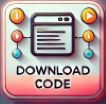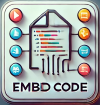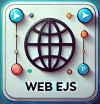Translations
| Code | Language | Translator | Run | |
|---|---|---|---|---|
 |
||||
Credits


 MarinahToh; lookang; Kymberly See
MarinahToh; lookang; Kymberly See
Credits
 ['MarinahToh', 'lookang', 'Kymberly See']
['MarinahToh', 'lookang', 'Kymberly See']
Sample Learning Goals
 |
| https://sg.iwant2study.org/ospsg/index.php/interactive-resources/sciences/computer-education/1213-source |
Educational Simulation for Digital Literacy Using Easy JavaScript Simulation Toolkit
This educational simulation is designed to teach and reinforce concepts of digital literacy, specifically focusing on the importance and use of keywords. Developed using the Easy JavaScript Simulation (EJS) toolkit, this interactive game offers an engaging way for students to understand digital search strategies. Here are some of the features that make this simulation an effective teaching tool:
Key Features
-
Interactive Question and Answer Format:
- The simulation presents questions related to digital literacy in an engaging format. For example, the question "We use keywords because they..." is presented with multiple-choice answers.
- Students must select the correct answer from the given options, reinforcing their understanding of the importance of keywords in digital searches.
-
Visual and Engaging Design:
- The game uses a fun and visually appealing design featuring sushi and animated characters. This playful environment makes learning enjoyable and helps to maintain student interest and engagement.
- The background and characters are vibrant and lively, which adds to the overall user experience.
-
Immediate Feedback and Scoring:
- The simulation provides immediate feedback on the student's selection. Correct answers contribute to the total score, while incorrect answers provide an opportunity for learning and correction.
- The scoring system is clearly displayed, motivating students to improve their performance and track their progress.
-
Round-Based Learning:
- The game is structured in rounds, with each round presenting a new question. This structure helps to break down the learning process into manageable segments, making it easier for students to absorb and retain information.
- The round number and total score are prominently displayed, helping students to understand their progress through the game.
-
Diverse Answer Options:
- The game offers multiple answer options for each question, such as "Help us to find what we want," "Make us careless," and "End up wasting time." This variety encourages students to think critically about each choice.
- By presenting plausible but incorrect options, the game challenges students to apply their knowledge and reasoning skills to select the correct answer.
-
User-Friendly Controls:
- The simulation includes simple and intuitive controls such as "Play," "Next," and "Reset" buttons. These controls make it easy for students to navigate through the game and retry questions if needed.
- The interface is designed to be accessible and straightforward, ensuring that students can focus on the content rather than struggling with navigation.
Benefits of the Simulation
-
Active Learning: The interactive nature of the game promotes active learning, where students engage directly with the material rather than passively consuming information. This active engagement helps to reinforce learning and improve retention.
-
Concept Reinforcement: By providing immediate feedback and allowing for repeated attempts, the game helps to reinforce key concepts related to digital literacy. Students can learn from their mistakes and gain a deeper understanding of the material.
-
Engaging and Motivating: The visually appealing design and interactive elements make the learning process enjoyable and motivating. Students are more likely to stay engaged and motivated to complete the game and improve their scores.
-
Practical Application: The questions and scenarios presented in the game are directly relevant to real-world digital literacy skills. By practicing these skills in a simulated environment, students can better understand how to apply them in actual digital searches.
Conclusion
This digital literacy simulation is a powerful educational tool that leverages the Easy JavaScript Simulation toolkit to create an interactive and engaging learning experience. By combining visual appeal, immediate feedback, and active learning elements, the simulation effectively teaches students the importance of keywords and other digital literacy skills. Whether used in a classroom setting or for independent study, this game provides a valuable resource for enhancing digital literacy education.
For Teachers
20240718-24 Web EJS beta Workshop by Francisco Esquembre and Félix J. García Clemente supported by MOE CPDD1 Registration for Web EJS Workshop (18-24 July 2024)
Venue: MOEHQ Buona Vista, B3-02 (18 July) P2-01-02 (19,22,23,24 July) or
Contact organisers at This email address is being protected from spambots. You need JavaScript enabled to view it.
Research
[text]
Video
[text]
Version:
Other Resources
[text]
end faq
{accordionfaq faqid=accordion4 faqclass="lightnessfaq defaulticon headerbackground headerborder contentbackground contentborder round5"}
- Details
- Written by Loo Kang Wee
- Parent Category: Sciences
- Category: Computer Education
- Hits: 3440








